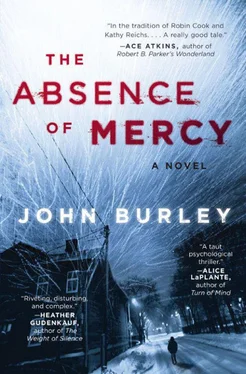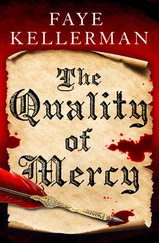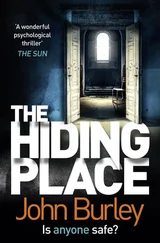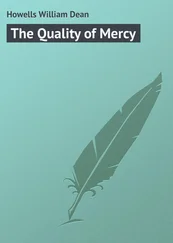He got down on his hands and knees, reaching his arms into the hole. The tips of his fingers dug for purchase at the corners of the lid, and then he was lifting it upward, casting it aside on the grass next to him. Inside the crate was a blue duffel bag wrapped in plastic, and he brought it to the surface. He got to his feet, removing the bag from the plastic and carrying it—almost gingerly—into the house.
In the kitchen, he placed his possession on the table and unzipped it. Inside was his passport, a map of Mexico, ten thousand dollars in small bills, and a series of postcards he’d received sporadically in the mail over the past two months. On the kitchen table was another postcard, one that had arrived in his mailbox three days ago. The front displayed a photograph of an old church rising up from amid a lush tapestry of variegated gardens. Villahermosa, it said. La Esmeralda del Sureste . Beautiful village. The emerald of the southeast. On the back was Ben’s name and mailing address—nothing more. No brief personal note or return address. But the message had been clear enough: We are here. We are safe. Come if you want .
The first card, he remembered, had come from the town of Tampico. It had arrived in his mailbox two and a half months after they’d disappeared. He had been sitting right here at the kitchen table sorting through mail when the thing had slid out from between two larger envelopes onto the flat wooden surface in front of him. He’d turned it over in his hands, curious but not yet realizing its significance. Then his body froze when he saw the soft slopes and curves of the handwritten letters—unmistakably Susan’s writing. He’d stared at those letters for a long time, as if he were an astonished biologist encountering a novel species of animal for the first time. Eventually, he’d turned the card over again to study the front. Tampico, it said in pink cursive writing overlying a picture of a white sand beach, the shimmer of the setting sun reflecting off the water’s surface. “ Tampico, ” he’d repeated to himself, the word sounding surreal and otherworldly in his own ears. The urge had fallen upon him to leave at that very moment, to purchase a plane ticket and to just go—to leave everything behind, bolting in the direction of the only contact he’d received from his family in more than two months.
Several considerations, however, had prevented him from doing just that. The most significant concern being, What if they’re just passing through? What if he got there to find that his wife and children had already moved on? And how would he go about finding them in the first place? Would he wander the streets asking people in English—the only language he spoke—whether they’d seen an American mother with two boys fitting Joel’s and Thomas’s descriptions? Tampico was a tourist destination. How many families vacationing there fit that exact picture? No, it wouldn’t work. He’d needed something more to go on.
For the time being, therefore, he had decided to wait, imagining that since Susan had sent him one postcard advising him of their whereabouts, more were sure to follow. Six weeks passed without further contact. Each day he’d stalk the mailbox, certain that this would be the day, and each day his heart would sicken with despair when he rummaged through the bills, catalogs, and assorted junk mail to find… nothing.
Then one day it came. A second postcard. On the front was a picture of a large pyramidal relic, above it the name El Tajín . Entering the name into an electronic search engine on his desktop computer identified it as a famous archeological site to the north of Veracruz, Mexico, along the Gulf of Mexico some 250 miles south of Tampico. They had moved on. This time, he decided, he would go after them.
Another concern had worried him, though. Would he be followed? Both the Sheriff’s Department and the FBI had been keeping tabs on him since Susan had taken the boys and run. If he suddenly purchased a ticket to Mexico, it was likely that someone in law enforcement would know about it. Traveling by car would be better, he decided one evening, a large map of the United States and Mexico sprawled on the kitchen table in front of him. He sat back to ponder the details, absently running his hand across the top of Alex’s broad head. Suddenly, he realized something else he hadn’t considered. What would he do about the dog? On the one hand, Alex was the only family he had left, the only one who hadn’t deserted him. On the other hand, traveling with a 180-pound Great Dane was not exactly the best way to keep a low profile. Finding accommodating hotels would be a persistent problem, and he doubted whether he’d even be allowed to bring the dog across the border. Eventually, he’d turned to the only person he felt he could trust with the responsibility.
“No problem, Dr. S. You leave that glandular freak to me.”
“I may be gone for a while, Nat. I’m not sure when I’ll be coming back. Are you sure you can handle—”
“You leave me a good supply of beer and keep payin’ the electric bills, and you can take a six-month trip to China, as far as I’m concerned.”
There was something else to discuss. The postcard from Villahermosa had come only a week after the last one, as if Susan and the boys had to leave their prior location unexpectedly. Ben could think of several possible reasons for their hurried relocation, but the one that kept surfacing in his mind involved his oldest son, a long sharp object, and the remains of yet another mutilated body discovered in his wake. In his mind, he could see the gaping holes left behind—flesh torn away by human teeth—and he wondered to himself once more: What sort of creature am I chasing? And what will I do when I find it? Then Nat’s voice was pulling him back to the moment.
“Yo, Dr. S. You still with me?” Nat searched his face with eyes that did not yet seem to understand that the world is full of predators, and that they are often much closer than we allow ourselves to believe.
Ben pulled the first postcard from his back pocket, the one from Tampico. “I need to ask you another favor,” he said.
“What’s that?”
“I’m expecting some additional correspondence from the same friend who sent me this.” He handed Nat the postcard. “If any more of these show up in the mail”—he tapped the card with his index finger—“I need to know about it. I’ll call you periodically to check in with you.”
Nat looked up at him skeptically. “A friend is sending you these.”
Ben nodded slowly. He felt stupid for taking this chance—he was making himself incredibly vulnerable—but it was the only way he would know if they moved on again. He had to trust someone, and strangely, that someone turned out to be this lanky twenty-two-year-old standing in front of him.
“And I imagine you wouldn’t want me to mention anything about this friend to, say… Chief Garston, for example.”
Ben’s face remained flat, devoid of expression—or so he hoped. “Chief Garston would not be interested in this friend, Nat. I wouldn’t bother him with it.”
“No,” Nat agreed. “I can’t imagine bothering him with stuff like that.”
“Thank you,” Ben said, unable to recall a time when he’d uttered those words with greater sincerity. He had begun to leave, but what Nat said next made him pause in mid-stride.
“’Bout time you went looking for them.”
Ben turned and looked back at his assistant. “Is it?”
Nat’s face was still, his eyes clear and earnest. “I would,” he responded.
“And when you found them?” Ben asked. “What then?”
Nat shrugged. “Don’t know. I guess I’d try to bring them home.”
Читать дальше
Конец ознакомительного отрывка
Купить книгу












